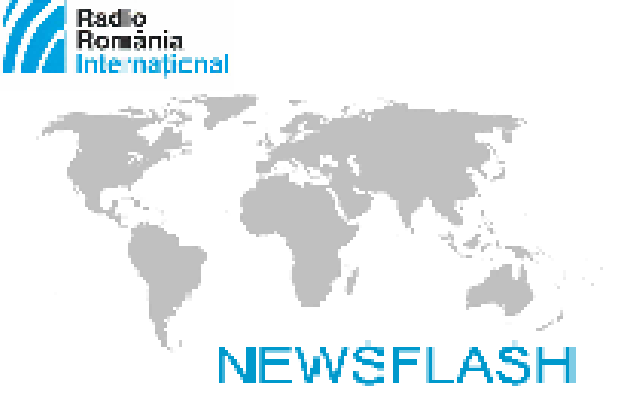September 2, 2014 UPDATE
A look at some of the main stories in Romania today.

România Internațional, 02.09.2014, 12:05
Romania’s prime minister Victor Ponta, who is on an official visit to China, was received on Tuesday by the head of the Chinese state Xi Jinping. The latter emphasised Romania’s constant position throughout the 65 years of bilateral diplomatic relations. The Romanian prime minister also had talks with representatives of the Chinese railway company about the construction of a high-speed railway track between Bucharest and Iasi which could eventually be extended to Chisinau, in the Republic of Moldova. On Monday, Victor Ponta met his counterpart Li Jeqiang. The two officials described the political ties between their countries as excellent and called for a boost to bilateral economic relations by means of joint projects in areas such as agriculture, energy and infrastructure.
The new head of the European Commission, Jean Claude Junker, whose term starts on November 1st, is holding hearings with the candidates nominated by each member state for the positions of European commissioners. Belgium has yet to nominate a candidate, because it did not manage to put together a government after the 25th of May elections. Two states have made more than one nomination, namely Slovenia, with three nominees, and Romania with two. Romania proposed Dacian Ciolos for a new term as commissioner for agriculture and Corina Cretu, an EMP and vice-president of the European Parliament, for the position of commissioner for regional policy.
At the NATO summit hosted by Wales this week, Romania will be in favour of a permanent NATO presence on its territory, as also requested by Poland and the Baltic states, said prime minister Victor Ponta on Tuesday. On Monday, NATO secretary general Anders Fogh Rasmussen said the North Atlantic Alliance would become more visible in the NATO members on its eastern flank through the creation of a rapid reaction force to cope with threats from Russia, as a result of the conflict in Ukraine. He said NATO would consolidate its military presence in Latvia, Lithuania, Estonia, Romania and Poland, but did not mention the possibility of creating permanent bases in these countries, which would run counter to the Russia-NATO treaty. Moscow said it would change its military strategy in response to NATO’s expansion to eastern Europe, closer to its own borders.
All European Union member states are ready to support the Republic of Moldova in its efforts to fulfil the terms of its free trade and association agreements with the EU, according to the EU’s next foreign policy chief, Italian foreign minister Federica Mogherini. She made this statement at the meeting in Chisinau of the European group dedicated to the Republic of Moldova. The main topics were Moldova’s European integration and ways to support Moldovan farmers affected by an export ban from Russia.
The European Union is to decide by Friday on a new set of sanctions against Moscow over its involvement in the Ukrainian crisis, said the EU’s next foreign policy chief, Federica Mogherini. The UN secretary general Ban Ki-moon, warned the western states about the dangers of a military escalation at a time when NATO is about to consolidate its presence in eastern Europe. The European Union, the Unites States and most western states are discussing ways to respond to Russia’s involvement in Ukraine, but political dialogue is the safest way to reach a political solution, said Bn Ki-moon. The conflict in eastern Ukraine, in which almost 2,600 people have been killed so far, took a new turn as the Ukrainian troops lost a lot of ground last week following a strong counteroffensive from the separatists, who, according to Kiev and NATO, benefit from the support of the Russian army. The UN’s refugee agency said more than one million people have had to flee their homes because of the conflict.




























